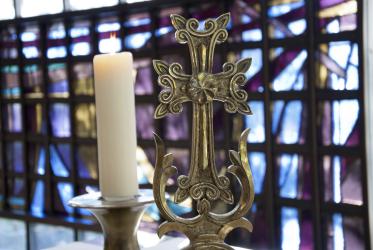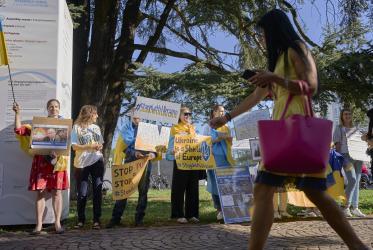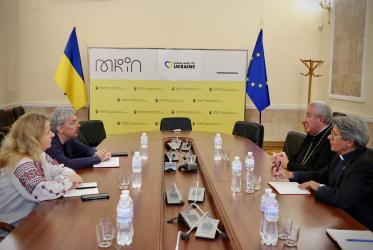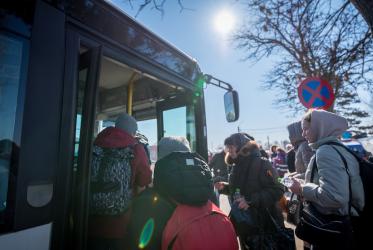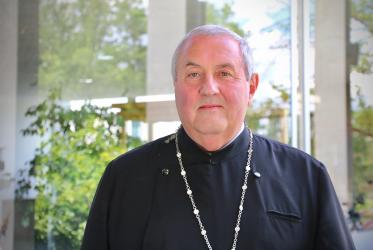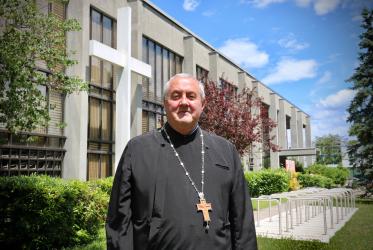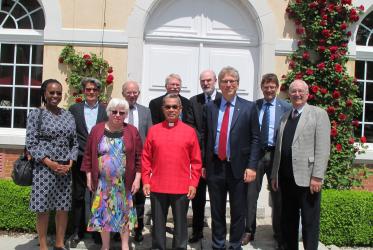Displaying 1 - 20 of 31
WCC calls for an immediate end to the current armed hostilities
24 February 2022
WCC urgently appeals for peace for the people of Ukraine
25 January 2022
Dealing with traumas and healing of wounds
04 June 2019
Trying to do good for the world
18 December 2017
An interview with the Ethiopian Patriarch, Abune Matthias
14 February 2017
Grand Imam calls for collaboration against violence and poverty
06 October 2016
Religious leaders of many faiths talk peace in Assisi
21 September 2016



